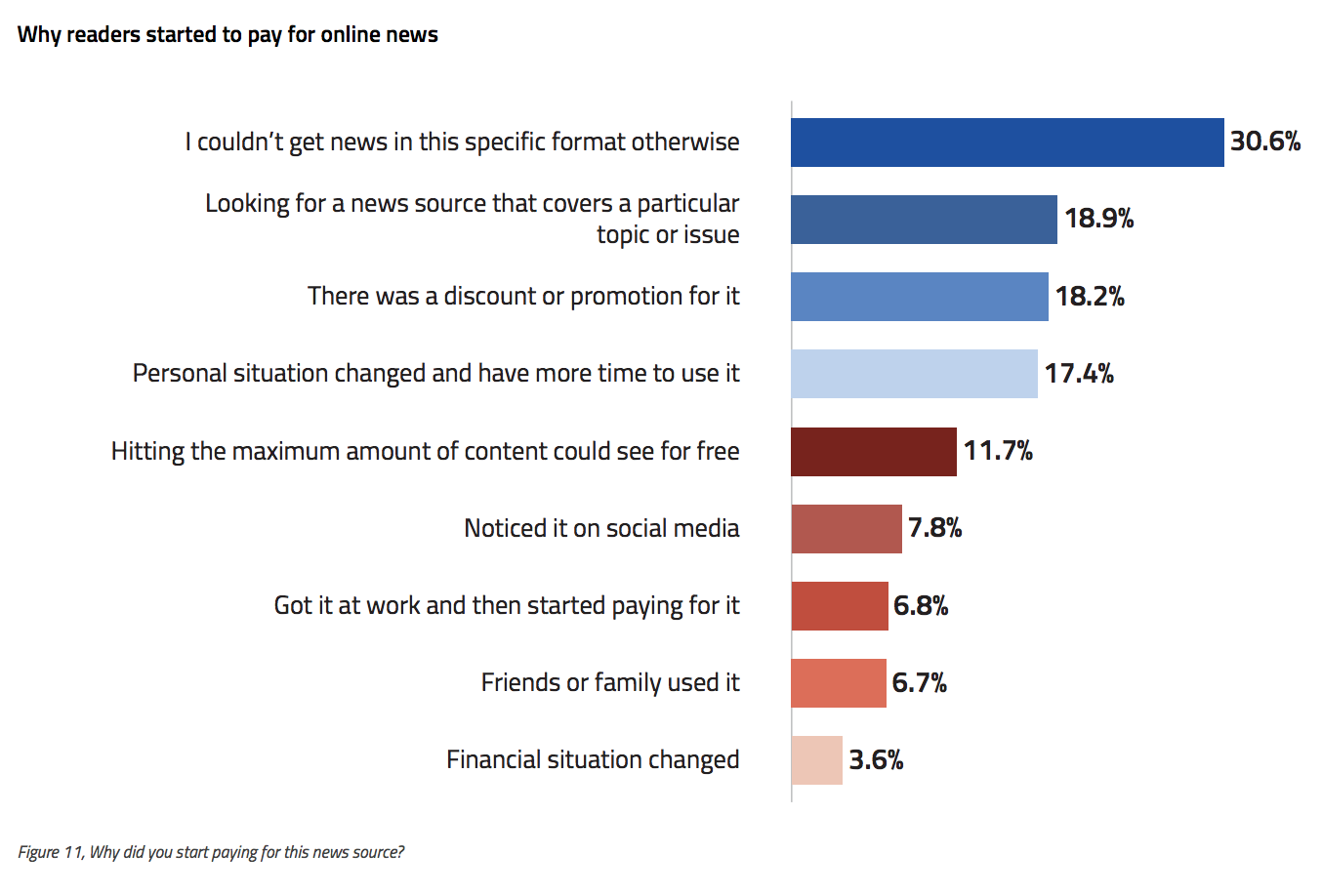What is the biggest benefit of paying for online news? Digital publishing firm Twipe surveyed nearly 4,000 people from six European countries and the U.S., and found that the most-cited reason for paying is unlimited access to stories — followed by, uh, access to print (with feeling good about paying for news quite a bit further down).

Most of the people surveyed also spend between 5 and 20 minutes per day consuming news, so it’s not as if they’re reading everything they have access to, but the “all you can eat” feeling is appealing — knowing you could read it all if you wanted to.
Respondents were clear that their favorite time to read news is the early morning, and “In Germany and Switzerland, a benefit that was mentioned by a few respondents was that the print newspaper comes too late to be included in their morning routines. Instead by paying for the digital version of the newspaper, they are able to access the day’s edition already early in the morning.”

Interestingly, while those surveyed cite unlimited stories as a big benefit to paying for digital news, few of them (11.7 percent) said that hitting the paywall was the main reason they started paying up (though “couldn’t get news in this specific format otherwise” may refer to payments as well).

You can download the full report here.